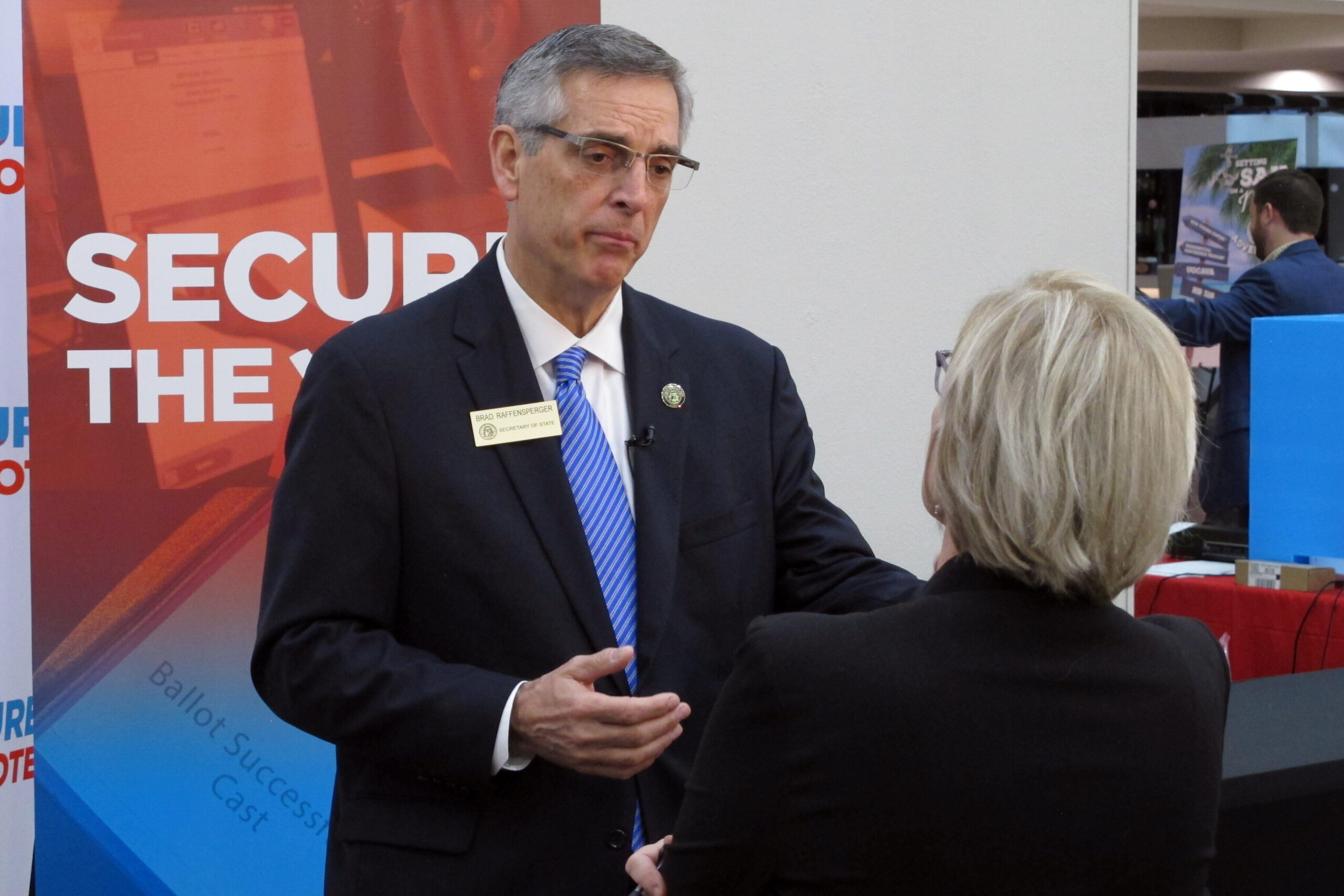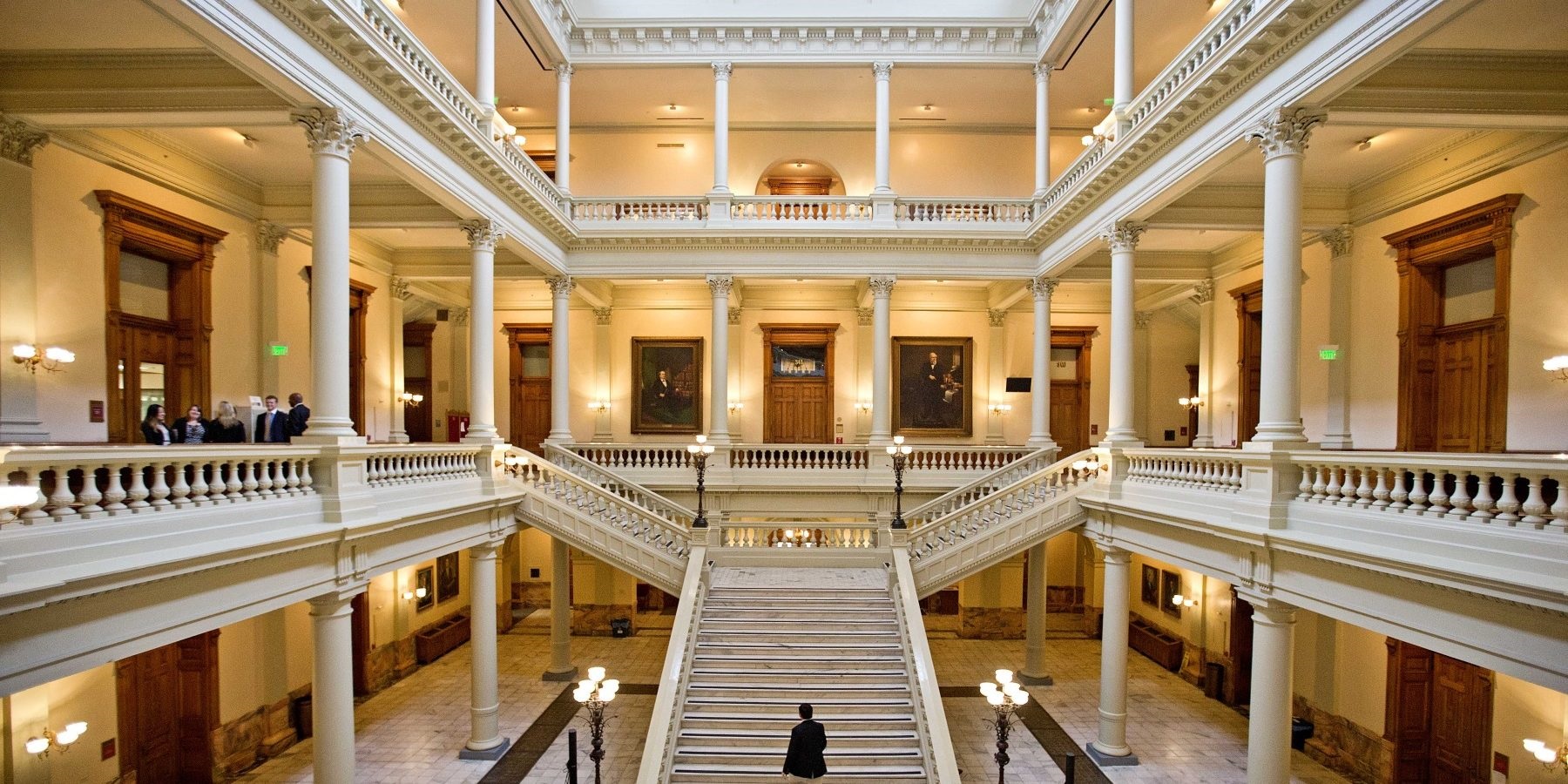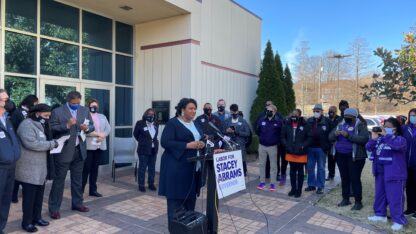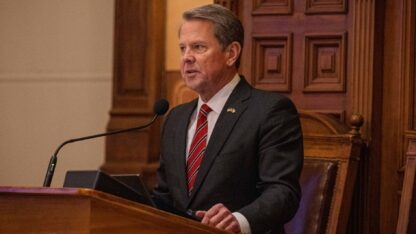Georgia’s primary elections are still set for May 19, despite calls from high-profile Republicans who want the primaries pushed back amid the coronavirus pandemic.
Georgia’s entire GOP delegation in Washington, along with state House Speaker David Ralston, is asking Secretary of State Brad Raffensperger to delay the May primary.
Raffensperger maintains his office can’t change the date.
“It requires either action by the General Assembly, or a decree from the governor with his emergency powers,” Raffensperger said.
But Gov. Brian Kemp at a press conference on Wednesday said he couldn’t do it either
“The attorneys that I’ve talked to, I don’t have the authority under this order to delay an election,” Kemp said.
That would seemingly leave the decision up to the General Assembly. But it would also mean reconvening that body at a time when the state is virtually locked down, and a handful of lawmakers themselves are still recovering from the coronavirus.
Early voting for the May primary begins April 27. The Secretary of State’s office is encouraging Georgians to vote by mail, but in-person voting will still be available.
The Democratic Party of Georgia released a statement on Wednesday that favored keeping the May 19 primary day.
“Rather than delaying the vote, it is critical that the state expand vote-by-mail and make it accessible for more voters,” said Nikema Williams, chairwoman of the state’s Democratic Party. “Without measures like guaranteeing paid postage for vote by mail ballots or expanding this vote by mail ballot program beyond the May primary, significant barriers remain for all Georgians to safely exercise their right to vote without risking their health or that of their communities.”
In an interview with WABE, Raffensperger said paying return postage for all 6.9 million absentee ballot applications that were mailed out this week would have cost the state an additional $3.5 million. He said that would have been an unexpected expense for the state.
He also said it is difficult to predict, under the circumstances, how many voters will complete and mail in the application in order to receive a ballot back in the mail.
“Will it be 500,000? A million?” Raffensperger ashed. “What will be that number of people who actually vote absentee? Or will it be the historical number, about 7%?”
It’s also unclear what affect the coronavirus will have on voting turnout overall. The typical campaign door knocking ground to a halt as soon as social distancing measures were put into place.
“We know from research that voters who are asked to go vote, not just a phone call, but have someone come knock on their door are more likely to participate,” said University of Georgia political science professor Charles Bullock. “So it probably will result in decreased turnout.”
Georgia’s presidential primary has already been delayed because of COVID-19. It was originally scheduled for March 24, before it was postponed to May 19 to coincide with congressional, legislative and local primary elections.









